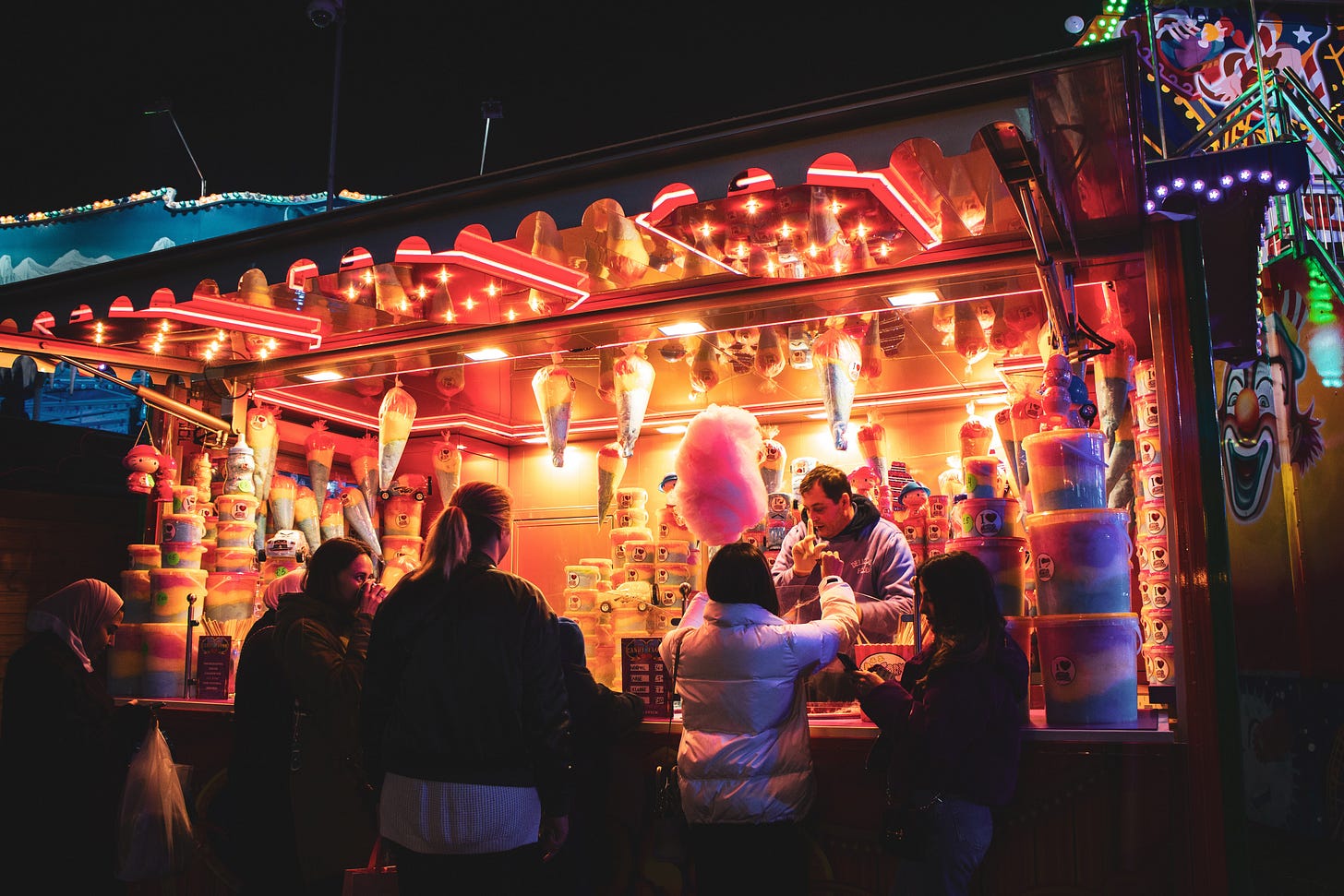Today is the last day for all extended Black Friday deadlines you heard about on Thursday. Or maybe it was Wednesday this year. It’s so hard to tell when all things urgent keep increasing in urgency. Don’t delay! Act now!! You’ll never have another chance at happiness again!!!
Keep reading, because there’s a very real chance your grandmother could die if you miss this.

There was a time when you thought you were happy, but you were wrong. And now you know it, because here is a shiny thing you never knew you wanted until you saw it. And now, all you see is the shine. Once the glare hit your eye, it blocked out every other consideration. You cannot ignore all that glitters. it may, in fact, be gold. Or better.
In many parts of the world, we are compelled today (and so many other days) to buy things. Anything. All the things. Why? Because we are told to. By someone. We forget who exactly. All we can think about is the thing that must be bought. It clouds out every other concern, consumes our attention as we wait for the perfect moment, anticipating the deal that will persuade us to commit to a purchase.
Then we click “BUY.”
And for a brief but glittering moment, we are happy. It is a wonderful feeling we mistake for joy. Happiness, as Don Draper once mused, is really only ever a moment that precedes more wanting. It’s a small hit before you need another. And once you’ve tasted the drug, you always want more. Everything is fading, and nobody knows what they need until they are shown it in bright flashing lights. Forget food, shelter, water. Man does not live on bread alone but on every word that comes from the mouths of advertisers.
But no one ever stops to consider the source of such wanting.
Human beings love to possess things, but often it is us who end up being possessed. One of my earliest memories of experiencing this was when I was eight or nine years old at the county fair with my dad.
As soon as I saw it, I wanted it. This primal instinct to possess turned itself into a need and was not a feeling that could be forgotten or dismissed. The thing was a cowboy hat with a braided leather band, but all I saw was a necessary tool for a life of endless adventure. The hat, I was quite certain, would turn me into a brave and intrepid archaeologist, one with a whip and a taste for the theatrical. I was going to be Indiana Jones. Not really, of course, but kind of. Mostly. And definitely in some very serious ways.
Before I saw the hat, I did not know it was needed. After beholding it, I knew it was something I could not be without. It had not existed before, and now it was all there was. Besides, it was being sold by a man with a ponytail at a stand filled with giant stuffed animals, so the question of quality was a foregone conclusion. This object was made for such a time as this, and I didn’t care about anything else. I wanted it. Once the wanting takes hold of you, there is little a person can do but go along for the ride.
My father did not put up much of a fight. Hearing my request, he relented, the way all good dads do even when they know better. He bought me the hat. He bought himself one, too. It felt good to have the same thing as my dad, to be like him in a very small way. We left the fair that night as equals, at least in terms of what sat atop our heads.
As soon as it was mine, I fashioned the hat to my own liking, removing the leather band which had only been glued on, reshaping it into something floppier and less articulate, more like the flimsy fedora of a bedraggled professor. It was wonderful and exciting, and, in such a short time, forgotten. I wore the hat for days, perhaps weeks, and soon saw it was not a practical accessory for the life of a third-grader. Like so many things, it got lost in a closet of clothes and board games, buried in a toy trunk, another relic of childhood.
Dad, in contrast, continued to wear his hat for years. He put it on when he went grocery shopping or mowed the lawn. It was something useful, a possession to not only be appreciated but utilized. As an adult, he understood that things are meant to be used and not merely purchased, and that is a very crucial distinction.
Every Christmas morning, my father would ask me, amidst piles of wrapping paper, ribbons, and murdered cardboard boxes, “Did you get everything you wanted?” It always made my stomach drop, this question, because to this point I hadn’t considered it. Now that it was asked, though, it was all I could think of.
The answer, of course, was no. Never. Did anyone? There is always something more, something else, to want. But how could I say such a thing to the man who’d broken his back to get me a LEGO set that year, who’d stayed up late once again to assemble an old toy train set so I could see it revolve around the already-dying tree, dripping with needles? I could not, and did not. Instead, I buried the wanting someplace deep, like a treasure or monster.
And now, as a man with bills to pay and a credit score to maintain, I understand the question differently, almost like a Zen koan—something to consider, even muse about. Did I get everything I wanted? As I turn it over in my mind, the question changes shape. With each twist and turn of those six words, I consider the various potential meanings. Thinking of my children and loved ones, I imagine all the things they could want. I think of my own desires, too, how petulant I can be, how impossible it is to fulfill every want of a human soul.
At first, I despair, then sort of marvel, at our capacity for the infinite. There is never any end to what we can want. And maybe there isn’t supposed to be. But when our wanting is objectified, it becomes something terrible to contend with. You and I cannot possibly keep up with all the Cyber Monday, Black Friday, and Giving Tuesday deals. There is no way to fit in all the invitations to Small Business Saturdays, Weird Gift Wednesdays, and Special Something Sundays. It’s just too much.
Maybe the issue isn’t that there is so much to want but rather our understanding of wanting itself. After all, before someone told you the solution to your desire was a thing, the wanting was subjective. It lived inside you and had no place in the outside world. Maybe that’s as it should be. Only when we attempt to translate the infinite into something finite do we suffer. That’s when our desire becomes a sort of sickness where the only apparent treatment is more disease. Our challenge, then, may not be to want less but understand that getting what we want is never the same thing as living.
P.S. This weekend, I wrote a poem. It is sort of the prequel to this essay. If you missed it, here’s the link:






This is one of my favorite things you’ve written, my love. The subtitle and conclusion are so, so good.
I'm glad it's nearly over and we don't even celebrate Thanksgiving in the UK. But Black Friday has made its way here. And I swear it started earlier this year. And at tge same time I bought a steam cleaner last night because I have always wanted one and I'm very excited about it!